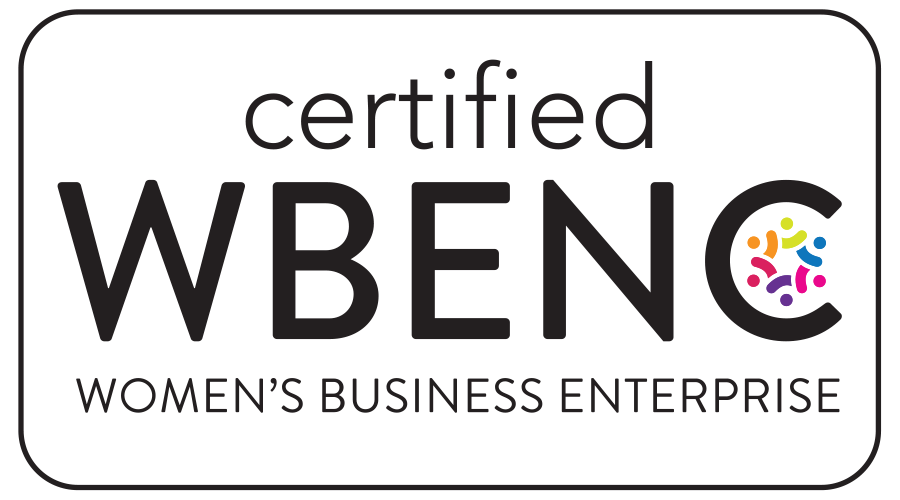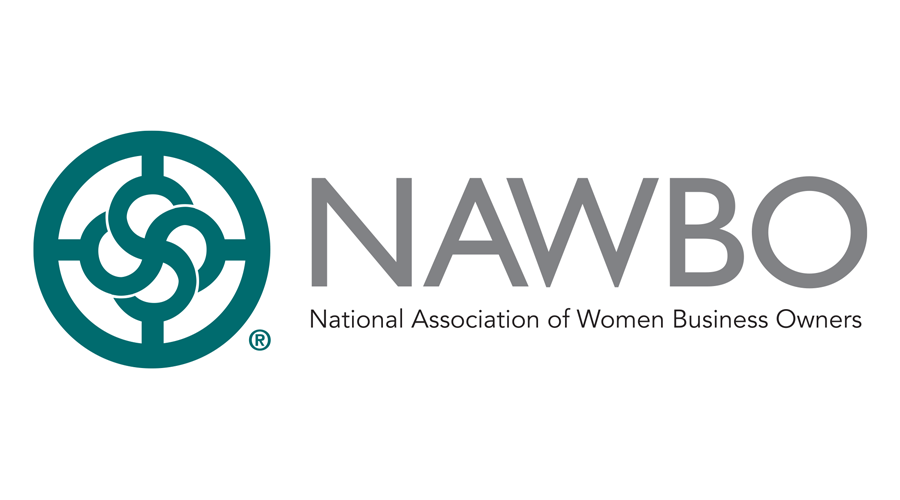April 27, 2022
Big changes are coming to Kentucky’s tax code. Ratified in April 2022, Kentucky House Bill 8 will gradually lower the state’s income tax and impose new sales taxes on certain high-growth industry services. Implications of the new bill on Kentucky businesses and individuals.
KY House Bill 8 to Lower Income Tax, Add Sales Tax to High-Growth, High Consumption Services, and Create New Tax Amnesty
After being approved in Kentucky’s House and Senate, then being vetoed by Kentucky Governor Andy Beshear, H.B. 8 was officially ratified on April 13, 2022. The ratification required the Republican Supermajority to impose an override of the Governor’s veto in the last two days of the Kentucky General Assembly’s recent session. House Bill 8 will significantly impact Kentucky’s tax code for individuals and businesses.
Under the bill, the state’s 5% individual income tax will be lowered gradually over a period of years if key trigger points are met. The bill will also broaden Kentucky’s sales tax base and impose new taxes on certain high-growth services in high-growth industries such as entertainment, personal fitness, ride-sharing, and electric and autonomous vehicles. These changes in Kentucky’s tax code are meant to promote economic growth in the short term and lay the groundwork for future pro-growth reform.
Income Tax
H.B. 8 specifies that a 0.5%point reduction to Kentucky’s individual income tax will be triggered under two specified conditions:
- When the balance in the Kentucky Budget Reserve Trust Fund (BRTF) reaches at least 10% of specific General Fund (GF) receipts at the end of a fiscal year
- When the GF receipts at the end of a fiscal year exceed GF appropriations by at least the amount that would be needed to reduce the individual income tax rate by a full percentage point.
If both trigger conditions are met for fiscal year 2021, Kentucky’s individual income tax rate of 5% will automatically be reduced to 4.5% starting January 1, 2023. If these conditions are met again in fiscal year 2022, this would conceivably lower the individual income tax rate to 4% in 2024, although further reduction is contingent upon reaffirmation by Kentucky’s legislature. Within these defined trigger conditions, individual income tax rate reductions in both 2023 and 2024 are highly likely.
Sales Tax
In addition to changes to income tax, H.B. 8 broadens Kentucky’s sales tax to high-growth services that are frequently consumed to offset a percentage of the planned income tax cuts. Newly taxed consumer services under the bill include personal fitness, athletic instruction, cosmetic surgery, expanded event parking, and admissions, residential moving, and other labor and professional services. It will also extend to various key growth business-to-business services such as telemarketing, general marketing, and website development services, and others.
Tax Amnesty and Other Tax Implications
Additionally, Kentucky H.B. 8 enacted a tax amnesty to run from October 1, 2022, to November 29, 2022, available for most types of taxes from taxable periods on, or after October 1, 2011, but prior to December 1, 2021. The amnesty excludes certain state and local real property tax, ad valorem tax on motor vehicles, motorboats, and personal property tax payable to local officials. The tax amnesty offers potential waiver of penalty and 50% of interest due on past due tax liabilities.
H.B. 8 also includes several excise tax changes to bring consistency to the taxation of vehicle rental and ride-sharing services such as Uber, Lyft, traditional taxicabs, certain limousine services, and traditional car rental services by taxing these services at a rate of 6% (matching the sales tax rate). In addition, H.B. 8 creates a new tax on energy distributed through electric vehicle charging stations and new registration fees for electric and hybrid vehicles.
Newly Taxable Services Under Kentucky H.B. 8
- Prewritten computer software access services – aka software as a service subscription
- Marketing services
- Web site design and development services
- Web site hosting services
- Telemarketing services
- Public opinion and research polling services
- Lobbying services
- Executive employee recruitment services
- Residential and non-residential security system monitoring services
- Rental of space for meetings, conventions, short-term business uses, entertainment events, weddings, banquets, parties, and other short-term, social events
- Social event planning and coordination services
- Pet care services, including but not limited to grooming and boarding services, pet sitting services, and pet obedience training services
- Industrial laundry services, including but not limited to industrial uniform supply services, protective apparel supply services, and industrial mat and rug supply services
- Non-coin-operated laundry and dry-cleaning services
- Linen supply services, including but not limited to table and bed linen supply services and non-industrial uniform supply services
- Indoor skin tanning services, including but not limited to tanning booth or tanning bed services and spray tanning services
- Non-medical diet and weight-reducing services
- Extended warranty services
- Photography and photo-finishing services
- Facsimile transmission services
- Private mailroom services, including
- Presorting mail and packages by postal code
- Address barcoding
- Tracking
- Delivery to postal service
- Private mailbox rentals
- Bodyguard services
- Private investigation services
- Process server services
- Repossession of tangible personal property services
- Personal background check services
- Parking services
- Valet services
- The use of parking lots and parking structures (excluding any parking services at an educational institution)
- Road and travel services provided by automobile clubs as defined in KRS 14 281.010
- Condominium time-share exchange services
- Leisure, recreational, and athletic instructional services
- Recreational camp tuition and fees
- Personal fitness training services
- Massage services, except when medically necessary
- Cosmetic surgery services
- Body modification services, including tattooing, piercing, scarification, branding, tongue splitting, transdermal and subdermal implants, ear pointing, and any other modifications that are not necessary for medical or dental health
- Testing services, except testing for medical, educational, or veterinary reasons
- Interior decorating and design services
- Household moving services
- Specialized design services, including the design of clothing, costumes, fashion, furs, jewelry, shoes, textiles, and lighting
- Lapidary services, including cutting, polishing, and engraving precious stones
- Labor and services to repair or maintain commercial refrigeration equipment and systems when no tangible personal property is sold in that transaction including service calls and trip charges
- Labor to repair or alter apparel, footwear, watches, or jewelry when no tangible personal property is sold in that transaction
Illinois—Corporate, Personal Income Taxes: Changes to EDGE, REV Illinois, and Other Credits Enacted
Apr. 25, 2022
Illinois enacted changes to numerous corporate and personal income tax credit programs. The changes include:
- expanding credit eligibility under the Economic Development for a Growing Economy (EDGE) and Reimagining Electric Vehicles in Illinois (REV Illinois) Programs;
- redefining “underserved area”for enhanced EDGE credits;
- extending the sunset date for new EDGE credit agreements from June 30, 2022 to June 30, 2027;
- changing the sunset date for the hospital tax credit from December 31, 2022 to December 31, 2027; and
- increasing the school instruction materials and supplies credit cap from $250 to $500 for tax years beginning after 2022.
EDGE Credits
Eligible startup taxpayers can now apply EDGE credits against Illinois corporate and personal income tax liability. A startup taxpayer is any business:
- organized for no more than 5 years before applying for a credit agreement; and
- that has never had any Illinois income tax liability.
The income tax threshold does not include the tax liability of related corporations, pass-through entities, or individuals that have a controlling interest in the startup taxpayer.
A startup taxpayer can elect to apply the credit against its Illinois income tax withholding liability. The election automatically expires when the startup taxpayer has any Illinois income tax liability at the end of the tax year during the term of the credit agreement.
Effective July 1, 2022, an “underserved area” eligible for enhanced EDGE credits is a geographic area in Illinois where:
- the poverty rate is 20% or more according to the latest American Community Survey;
- 35% or more of the families with children are living below 130% of the poverty line according to the latest American Community Survey;
- 20% or more of the households receive assistance under the Supplemental Nutrition Assistance Program (SNAP); or
- the average unemployment rate is more than 120% of the national unemployment average for 2 consecutive years before the date of the credit application.
The new definition also applies to the enhanced river edge development zone construction jobs credit.
REV Illinois Credits
Illinois is expanding REV Illinois credit eligibility to manufacturers of electric vehicles (EVs), EV parts, or EV power supply equipment that rely on hydrogen fuel cells or solar technology for power or refueling. Tier 1 credit eligibility also now applies to:
- battery recycling and reuse manufacturers; and
- battery raw materials refining service providers.
Finally, Illinois is modifying the minimum wage thresholds for new credit agreements to create full-time jobs. A manufacturer must pay 120% or more of the average wage paid to full-time employees in a similar position within an occupational group in the county where its facility is located.
P.A. 101-700 (S.B. 157), Laws 2022, effective April 19, 2022 and as noted
Maryland—Multiple Taxes: More Jobs for Marylanders Program Amended
Apr. 25, 2022
Enacted legislation amends the More Jobs for Marylanders Program, which provides income, property, and sales tax incentives for the creation of new jobs by businesses engaged in manufacturing or that are located in opportunity zones. In addition to eligibility and benefit changes noted below, the law extends the program to allow the Department of Commerce to certify projects through June 1, 2024.
Eligibility Changes
For purposes of the program, for manufacturing businesses that are provided a certificate of eligibility before June 1, 2022, a “qualified position” must pay at least 120% of the state minimum wage. For such businesses that receive a certificate of eligibility after June 1, 2022, a position must pay at least 150% of the state minimum wage to be considered a qualified position.
Additionally, on or after June 1, 2022, in order to apply to the program, business entities located in Tier 1 areas must provide intent to create at least 10 qualified positions at the project location (5 positions for notice provided to the Department prior to June 1, 2022). Businesses in Tier 2 locations must provide intent to create at least 20 qualified positions at the project location for notice provided on or after June 1, 2022 (10 positions for notice provided before that date).
Further, for purposes of the sales and property tax incentives, a “qualified business entity” is an entity that receives a certificate before June 1, 2022.
Benefit Years
For certificates issued prior to June 1, 2022, benefits may be claimed by a qualified business entity for up to 10 consecutive benefit years. However, for certificates issued to a qualified business in a Tier 2 area on or after June 1, 2022, benefits may be claimed by a qualified business entity for up to five consecutive benefit years.
Income Tax Credit Amount
If a qualified entity receives a certificate prior to June 1, 2022, the amount of the income tax credit is equal to 5.75% multiplied by the total amount of wages paid for each qualified position. For certificates issued on or after June 1, 2022, the credit amount is equal to 4.75% multiplied by the total wages paid for each qualified position.
Additionally, the aggregate amount of the credit allowed for each fiscal is year is decreased from $9 million for certificates issued prior to June 1, 2022, to $5 million for certificates issued on or after June 1, 2022.
Ch. 136 (S.B. 391), Laws 2022, effective as noted above
Nebraska—Multiple Taxes: Ex-Felons Employment Credit Created
Apr. 27, 2022
Nebraska created a tax credit for employers that hire ex-felons. Taxpayers that are eligible for the credit, effective for tax years beginning on or after January 1, 2023, include:
- corporate income taxpayers;
- personal income taxpayers;
- fiduciary income taxpayers; and
- insurance premiums taxpayers.
Employers can claim the credit for the first 12 months of the ex-felon’s employment.
How Much Is the Credit?
The credit equals 10% of the wages paid to each ex-felon. Nebraska caps the credit for each taxpayer at $20,000 for the tax year. It caps the credit program for all taxpayers at $5 million each year.
How Do Taxpayers Apply for the Credit?
Employers must submit a credit application to the Nebraska Department of Revenue that includes:
- the number of ex-felons employed by the employer during the tax year; and
- the amount of wages paid to each ex-felon during the tax year.
Is the Credit Refundable?
The credit is nonrefundable.
Can Taxpayers Carryforward Unused Credits?
Taxpayers cannot carryforward unused credits.
L.B. 917, Laws 2022, effective April 18, 2022 and
Nebraska—Corporate, Personal Income Taxes: ImagiNE Act Credit Amended
Apr. 27, 2022
Nebraska amended the ImagiNE Nebraska Act, which provides corporate and personal income tax credits for investments and job creation in the state.
Job Creation Thresholds
If a taxpayer increased the number of new employees who are Nebraska residents in 2020 and 2021 due to the COVID-19 pandemic, the base year for determining job creation thresholds is 2019. Nebraska will also treat employees who perform services for a taxpayer at the employee’s home in the state as time spent at the taxpayer’s business location.
Real Estate Improvements
Improvements to real estate can qualify for the investment credit even if the taxpayer does not finish or use the improvement before claiming the credit. The percentage of completion determines the part of the investment that occurs for any tax year.
Reporting Requirements
Taxpayers must provide for the purpose of tax incentive performance audits:
- the most recent tax valuations and levy rates for all eligible business locations;
- if the taxpayer uses the credit for job training, a program schedule of job training activities; and
- if the taxpayer uses the credit for job recruitment activities, the city and state where employees lived when the recruitment activities took place.
Leasing Companies
Leasing companies can use ImagiNE credits to reduce the company’s Nebraska withholding tax liability if:
- the taxpayer is the client-lessee; and
- the tax liability is from new employees performing services at the client-lessee’s business location.
L.B. 1150, Laws 2022, effective April 19, 2022
To learn more, reach out to Ashmore Consulting.
The information contained herein is general in nature and is not intended, and should not be construed, as legal, accounting or tax advice or opinion provided by Ashmore Consulting LLC to the reader. The reader also is cautioned that this material may not be applicable to, or suitable for, the reader’s specific circumstances or needs, and may require consideration of non-tax and other tax factors if any action is to be contemplated. The reader should contact Ashmore Consulting LLC or other tax professional prior to taking any action based upon this information. Ashmore Consulting LLC assumes no obligation to inform the reader of any changes in tax laws or other factors that could affect the information contained herein.

 Ashmore Consulting is proud to join Pledge 1%, a global movement creating new normal where companies of all sizes integrate giving back into their culture and values. Pledge 1% empowers companies to donate 1% of product, 1% of equity, 1% of profit or 1% of employee time to causes of their choice. Over 1,500 companies in 40 countries have taken the Pledge and committed to give to communities around the world. Ashmore Consulting is excited to join Pledge 1%’s network of founders, entrepreneurs and companies around the globe that have committed to giving back.
Ashmore Consulting is proud to join Pledge 1%, a global movement creating new normal where companies of all sizes integrate giving back into their culture and values. Pledge 1% empowers companies to donate 1% of product, 1% of equity, 1% of profit or 1% of employee time to causes of their choice. Over 1,500 companies in 40 countries have taken the Pledge and committed to give to communities around the world. Ashmore Consulting is excited to join Pledge 1%’s network of founders, entrepreneurs and companies around the globe that have committed to giving back.


